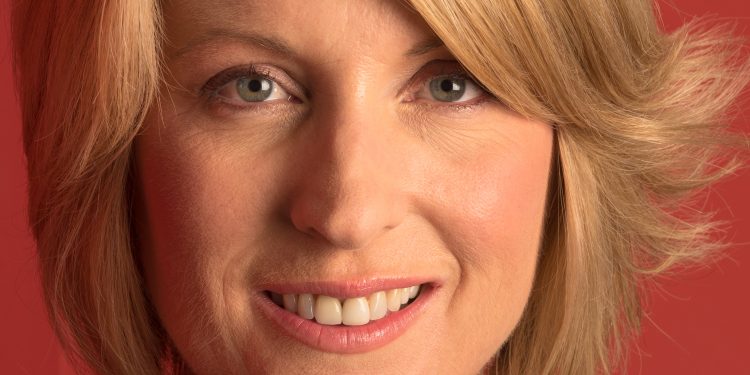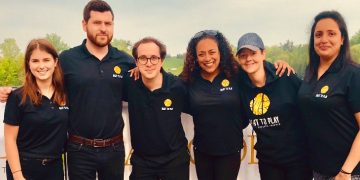3 Questions with TD’s incoming VP, Community Relations and Corporate Citizenship- Andrea Cohen Barrack
There’s a relatively new way of thinking about how to create long term social change. One that builds upon the traditional models of philanthropy and charity to a new paradigm where the private sector is directly involved in addressing social issues. It’s a place where the public, social and private sectors work together to co-create shared value and collective impact.
A generation ago, you’d have typically worked in one sector (likely one company for that matter) your entire career. And if you wanted to “do good”, you’d have worked for a nonprofit or donated/volunteered with a charity outside of work. You’d also likely had the mindset that businesses have no business in social impact.
But today’s leaders and young professionals have redefined what it means to have an impact career and support the idea that you can be working towards social impact regardless of sector (just differently). Businesses are taking an active role in influencing social change and becoming more strategic and thoughtful about their impact and purpose as an organization.
With this change comes new challenges and needs for leaders. Notably, the importance of understanding all three sectors and the value of experience with each. Whether it’s speaking the right language of impact to your stakeholders or building the business case for support, leaders need to be able to adapt to succeed. Because at the end of the day, change is driven by the people within an organization, not the organization itself. And one such leader is Andrea Cohen Barrack.
This week, we bring you a special Q & A with Andrea, TD’s incoming VP, Community Relations and Corporate Citizenship and outgoing CEO of the Ontario Trillium Foundation. Andrea tells us more about her new role (starting next week), what she hopes to achieve and advice for switching sectors in your career. Insights you don’t want to miss.
Why TD- what intrigued you about this role?
Those are two very distinctive questions, and both are critically important. The first is about the company and the second is about the specific role. I have had to date a varied career in different sectors, but the constant in all of the organizations that I have worked with is that they have values that align with my own. TD is an organization that has a strong history in being community focused, in having an engaged and positive work culture and in taking a leadership role on emerging and important issues. Examples like providing early support of LGBTTQ+ communities and newcomer communities demonstrate TD’s forward thinking and commitment to their values.
…but the constant in all of the organizations that I have worked with is that they have values that align with my own.
For the second part of the question, this particular role at TD is an opportunity to reshape and redefine the social impact that the company aspires to. Building on a very strong foundation in Corporate Social Responsibility, we have an opportunity to focus our efforts to not only make a positive difference, but demonstrate that positive difference. TD has bold aspirations to be the better bank. Corporate Social Responsibility is an outward representation of its core values and guiding principles – it’s commitment to enriching the communities it serves. For me, that is exceptionally compelling and I’m thrilled to be a part of it.
What do you hope to achieve as VP, Community Relations and Corporate Citizenship at TD?
I have spent my career to date in the public benefit sector, working with others to create positive change. One of the key learnings that I have had is that in order for real social change to occur, business must be at the centre. From my experience at the Ontario Trillium Foundation, it become clear that even with hundreds of millions invested, it isn’t enough to tackle the complex issues our society needs to address. For that, we need the private sector to be engaged and involved.
One of the key learnings that I have had is that in order for real social change to occur, business must be at the centre. From my experience at the Ontario Trillium Foundation, it become clear that even with hundreds of millions invested, it isn’t enough to tackle the complex issues our society needs to address.
There is an increasing acceptance that we need to move beyond philanthropy, beyond grants and charity. That will always have a place, but now there is an increasing focus on how private and public sectors can work better to create shared value and collective impact. I would very much like to achieve an integrated CSR strategy that is aligned to business objectives – providing financial return to the bank while creating positive social, economic and environmental impacts in the community.
There is an increasing acceptance that we need to move beyond philanthropy, beyond grants and charity. That will always have a place, but now there is an increasing focus on how private and public sectors can work better to create shared value and collective impact.
How do you think your previous work/life experiences will help you in your new role and what advice would you give to others aspiring to make a similar shift from the public to private sector?
In many ways, this new role at TD is a great fit for my varied experience and skill set. One of my mentors once told me that I have a unique combination of analytic and creative skills, which I think will be valuable. Other experiences in change leadership, stakeholder engagement and driving results will be key- I imagine.
One of the big changes we are beginning to see is a recognition that there is value of having tri-sector experience; that is in business, government and social sectors. In 2013, the Harvard Business Review had a great article called, “Triple-Strength Leadership”, which really got me thinking about moving to the business sector. The idea is that I could contribute public value regardless of the sector I worked in and that my government and social sector experience would help business. I would highly recommend the article for anyone looking to shift between sectors.
The idea is that I could contribute public value regardless of the sector I worked in and that my government and social sector experience would help business.
To learn more about Andrea Cohen Barrack, read our past interview with her here.
Do you have a suggestion for a Q&A? Send your ideas to info(at)bmeaningful.com
If you found this post interesting, please share it 🙂
Want more curated content delivered straight to your inbox?
Follow us on twitter @b_meaningful and like us on Facebook







No Comment